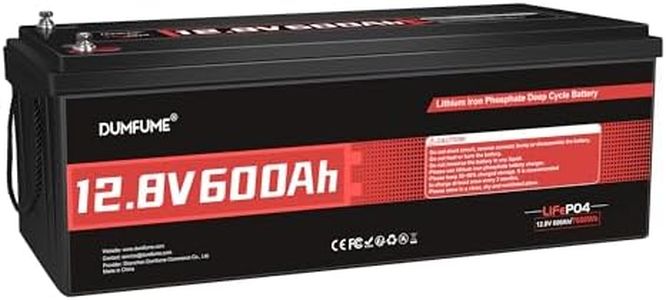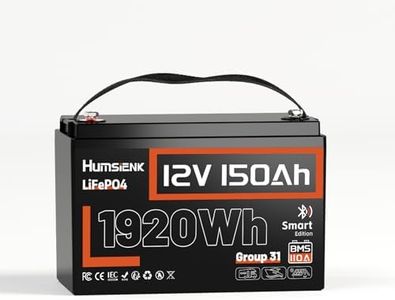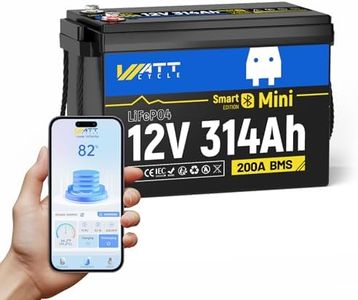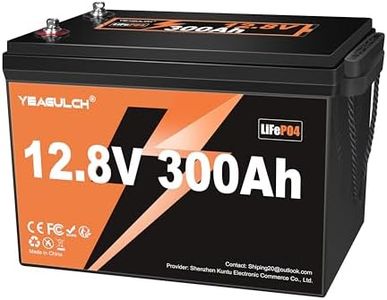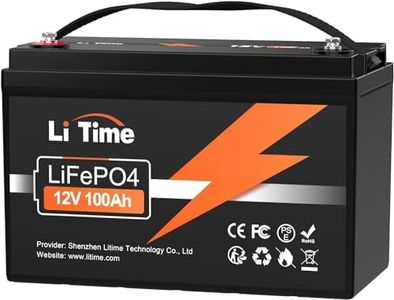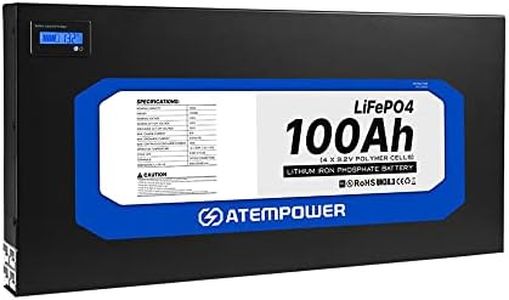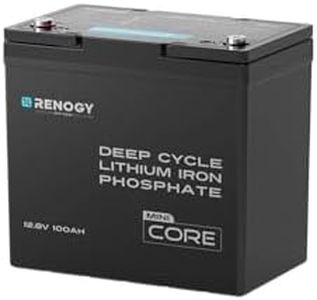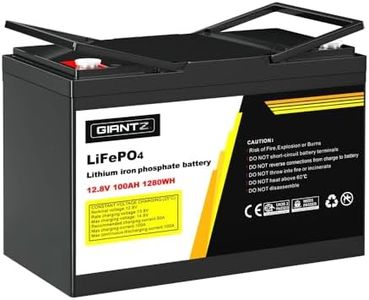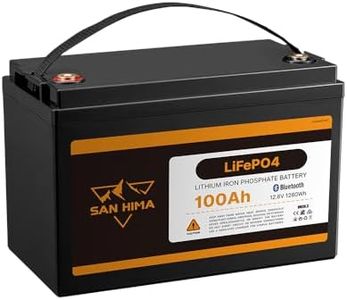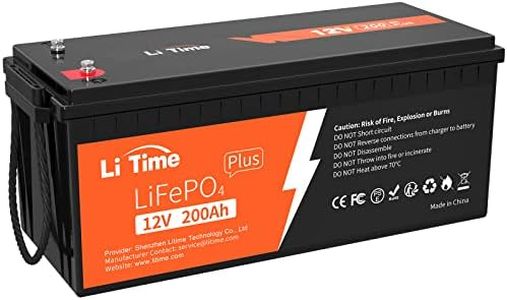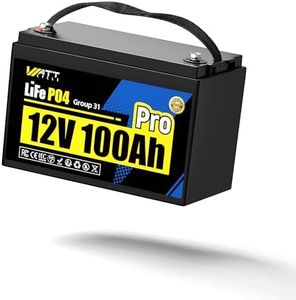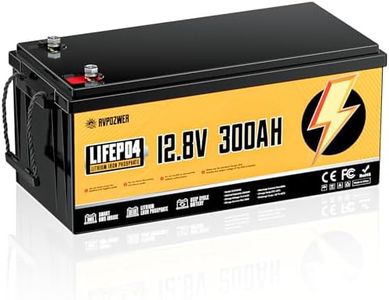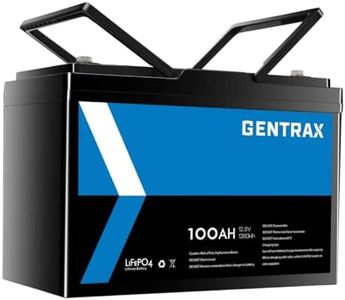We Use CookiesWe use cookies to enhance the security, performance,
functionality and for analytical and promotional activities. By continuing to browse this site you
are agreeing to our privacy policy
10 Best Lithium Battery For Solar
From leading brands and best sellers available on the web.Buying Guide for the Best Lithium Battery For Solar
Selecting the right lithium battery for your solar system is essential for reliable energy storage and efficient use of your generated power. It’s important to match your battery’s capacity and features to your daily energy needs, solar setup, and intended use, such as backup power, off-grid living, or grid-tied energy savings. Considering how much energy you use, how often you want to run on stored power, and what devices you need to support will help you make a smarter choice.Battery Capacity (Ah or Wh)Battery capacity tells you how much energy the battery can store, usually measured in ampere-hours (Ah) or watt-hours (Wh). This is crucial because it determines how long your stored solar energy will last during periods without sunlight. Batteries with lower capacity (under 100Ah or 1000Wh) are suited for small, occasional use like powering lights or small appliances, while larger capacities (100-200Ah, 1200-2500Wh) can handle more devices and longer use, great for RVs or home backup. Very large capacities (over 200Ah or 3000Wh) are best for heavy use or full-time off-grid living. To pick the right capacity, estimate your daily energy consumption and ensure the battery can handle at least a day's worth.
Voltage (V)The voltage rating, often 12V, 24V, or 48V, indicates the electrical pressure the battery provides. It's important because it needs to match your inverter or solar controller. For smaller systems or portable use, 12V is common and easy to integrate. For larger home systems or higher efficiency, 24V or 48V is better since they reduce losses, allow thinner wiring, and support bigger inverters. Choose the voltage that fits your existing solar equipment or the scale of your system.
Cycle LifeCycle life tells you how many times the battery can be charged and discharged before it loses significant capacity. This matters for longevity—batteries with higher cycle life are more durable and cheaper over time. Low cycle life (under 2,000 cycles) is fine for light, occasional use, while moderate (2,000-4,000 cycles) suits regular, everyday use. Premium batteries with 5,000+ cycles are ideal for constant, heavy-demand scenarios like off-grid homes. Consider how often you expect to charge/discharge the battery, and opt for a longer cycle life if you plan heavy or daily usage.
Depth of Discharge (DoD)Depth of discharge describes how much of the battery's capacity can be used safely before needing to recharge. A higher DoD (80-100%) means you can use more of the battery's energy without harming it, which gives you better efficiency and value. Lower DoD (under 80%) means you need to keep more energy in reserve, so you get less usable capacity. If you want maximum flexibility to use stored power, look for batteries with a high DoD rating.
Charge/Discharge Rate (C-Rate)C-Rate measures how quickly a battery can be charged or provide power. This matters if you want to power high-demand devices or recharge quickly. A low C-Rate battery is suitable for steady, low-power loads, while a higher C-Rate supports large appliances or fast charging. Think about what you'll run from the battery—high power tools or pumps need a higher C-Rate, while LED lights and small gadgets are fine with a lower rate.
Operating Temperature RangeOperating temperature range means the span of temperatures where the battery performs safely and efficiently. This is important if you’ll use the battery outdoors or in places with significant temperature changes. Batteries with narrow temperature ranges are fine for climate-controlled use; wider ranges are important if you want reliability in hot or freezing environments. Consider your installation location and pick a battery suited for those conditions.
Battery Management System (BMS)A Battery Management System protects from overcharging, deep discharging, and overheating. It's vital for safety, performance, and longer battery life. Some batteries have basic BMS, which works for simple setups. Advanced BMS can handle balancing, remote monitoring, and automatic shutdowns for bigger, more complex systems. If you value safety, reliability, or want remote control and diagnostics, look for batteries with a robust BMS.
